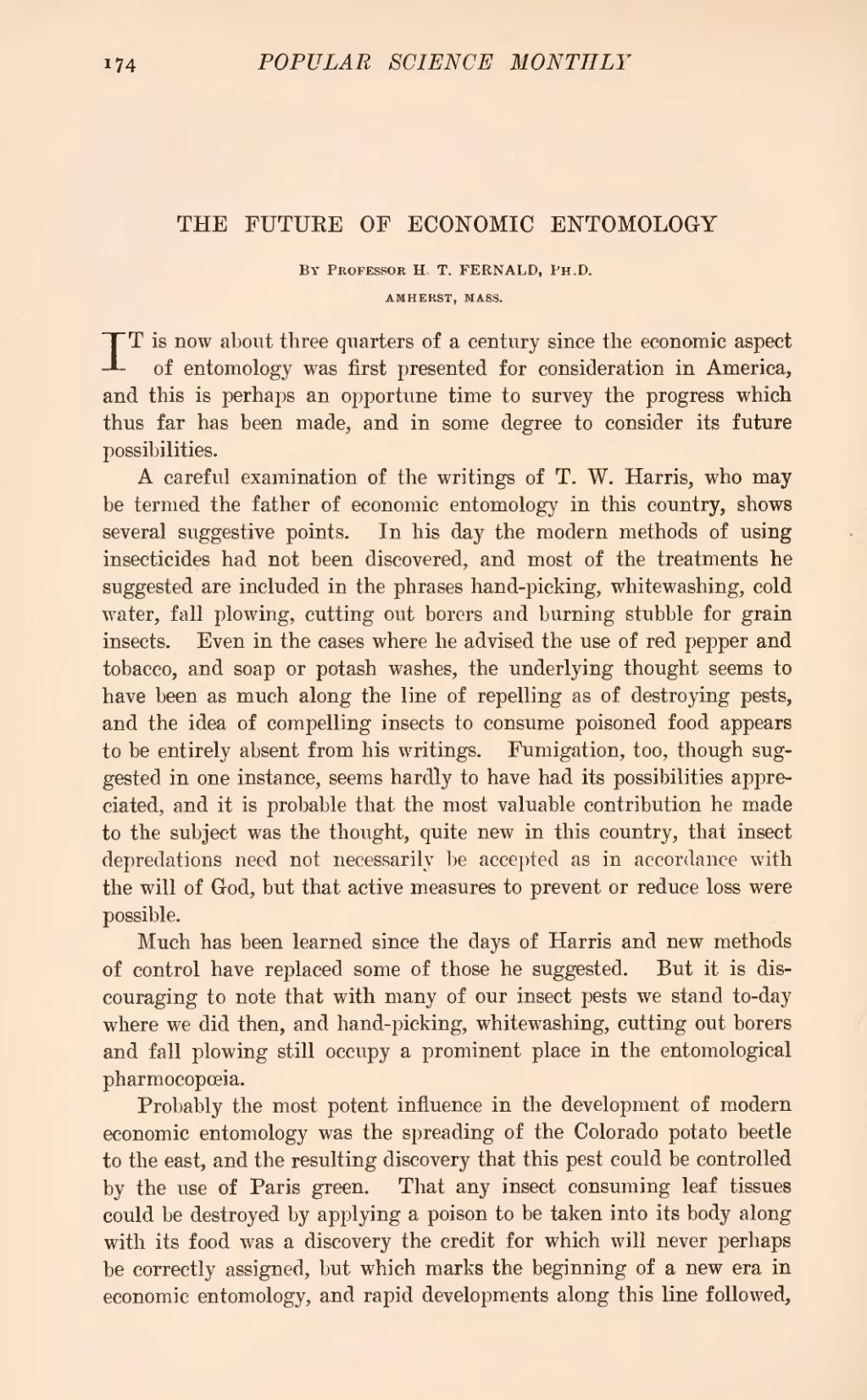| THE FUTURE OF ECONOMIC ENTOMOLOGY |
By Professor H. T. FERNALD, Ph.D.
AMHERST, MASS.
IT is now about three quarters of a century since the economic aspect of entomology was first presented for consideration in America, and this is perhaps an opportune time to survey the progress which thus far has been made, and in some degree to consider its future possibilities.
A careful examination of the writings of T. W. Harris, who may be termed the father of economic entomology in this country, shows several suggestive points. In his day the modern methods of using insecticides had not been discovered, and most of the treatments he suggested are included in the phrases hand-picking, whitewashing, cold water, fall plowing, cutting out borers and burning stubble for grain insects. Even in the cases where he advised the use of red pepper and tobacco, and soap or potash washes, the underlying thought seems to have been as much along the line of repelling as of destroying pests, and the idea of compelling insects to consume poisoned food appears to be entirely absent from his writings. Fumigation, too, though suggested in one instance, seems hardly to have had its possibilities appreciated, and it is probable that the most valuable contribution he made to the subject was the thought, quite new in this country, that insect depredations need not necessarily be accepted as in accordance with the will of God, but that active measures to prevent or reduce loss were possible.
Much has been learned since the days of Harris and new methods of control have replaced some of those he suggested. But it is discouraging to note that with many of our insect pests we stand to-day where we did then, and hand-picking, whitewashing, cutting out borers and fall plowing still occupy a prominent place in the entomological pharmocopœia.
Probably the most potent influence in the development of modern economic entomology was the spreading of the Colorado potato beetle to the east, and the resulting discovery that this pest could be controlled by the use of Paris green. That any insect consuming leaf tissues could be destroyed by applying a poison to be taken into its body along with its food was a discovery the credit for which will never perhaps be correctly assigned, but which marks the beginning of a new era in economic entomology, and rapid developments along this line followed,
